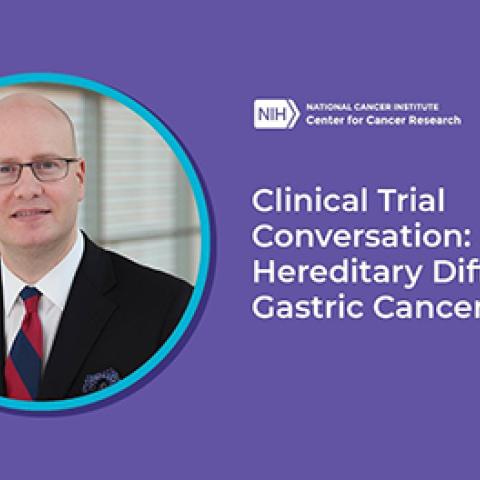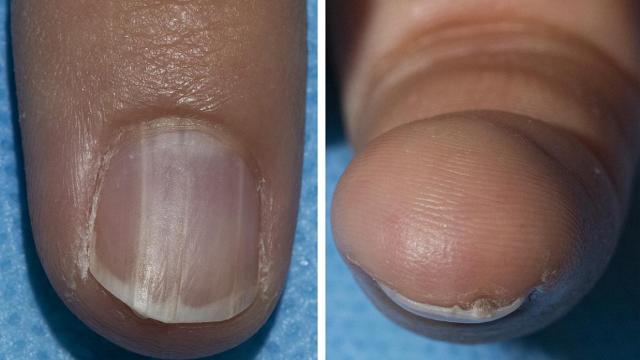Patients with hereditary diffuse gastric cancer may be eligible to participate in a new clinical trial at the NIH Clinical Center.
Hereditary diffuse gastric cancer is a rare inherited condition caused by a mutation in the CDH1 gene. People who carry this genetic mutation are urged to have a screening endoscopy followed by prophylactic surgery to remove the stomach. However, some patients elect to have regular endoscopic screenings to look for cancer. Using a small camera at the end of a long, flexible tube (an endoscope), a doctor can visually examine the mucous membrane (mucosa) that lines the inside of the stomach. The endoscope can also be used to take biopsies from a few areas of the gastric mucosa. However, standard endoscopy is not sensitive enough to detect signet ring cancer cells (SRCCs), which can be in many locations throughout the mucosa and are indicative of gastric cancer. Jeremy L. Davis, M.D., of the Surgical Oncology Program is leading a study using an imaging technology called confocal endoscopic microscopy (CEM). CEM produces highly magnified images of the gastric mucosa that may better detect SRCCs in patients with the CDH1 mutation. CEM may also allow doctors to make a diagnosis during the endoscopy itself, without having to take biopsies that must then be examined in a lab.
Clinicaltrials.gov identifier: NCT03648879
NCI Protocol ID: NCI-18-C-01141
Official Title: Phase II Study Evaluating Confocal Endoscopic Microscopy for Detection of Early Stage Gastric Cancer in Subjects With Hereditary Diffuse Gastric Cancer Syndrome
The Center for Cancer Research is NCI’s internal cancer center, a publicly funded organization working to improve the lives of cancer patients by solving important, challenging and neglected problems in cancer research and patient care. Highly trained physician-scientists develop and carry out clinical trials to create the medicines of tomorrow treating patients at the world’s largest dedicated research hospital on the campus of the National Institutes of Health in Bethesda, Maryland.
For more information on CCR clinical trials click here, and subscribe to have the latest CCR clinical trials sent directly to your inbox.



